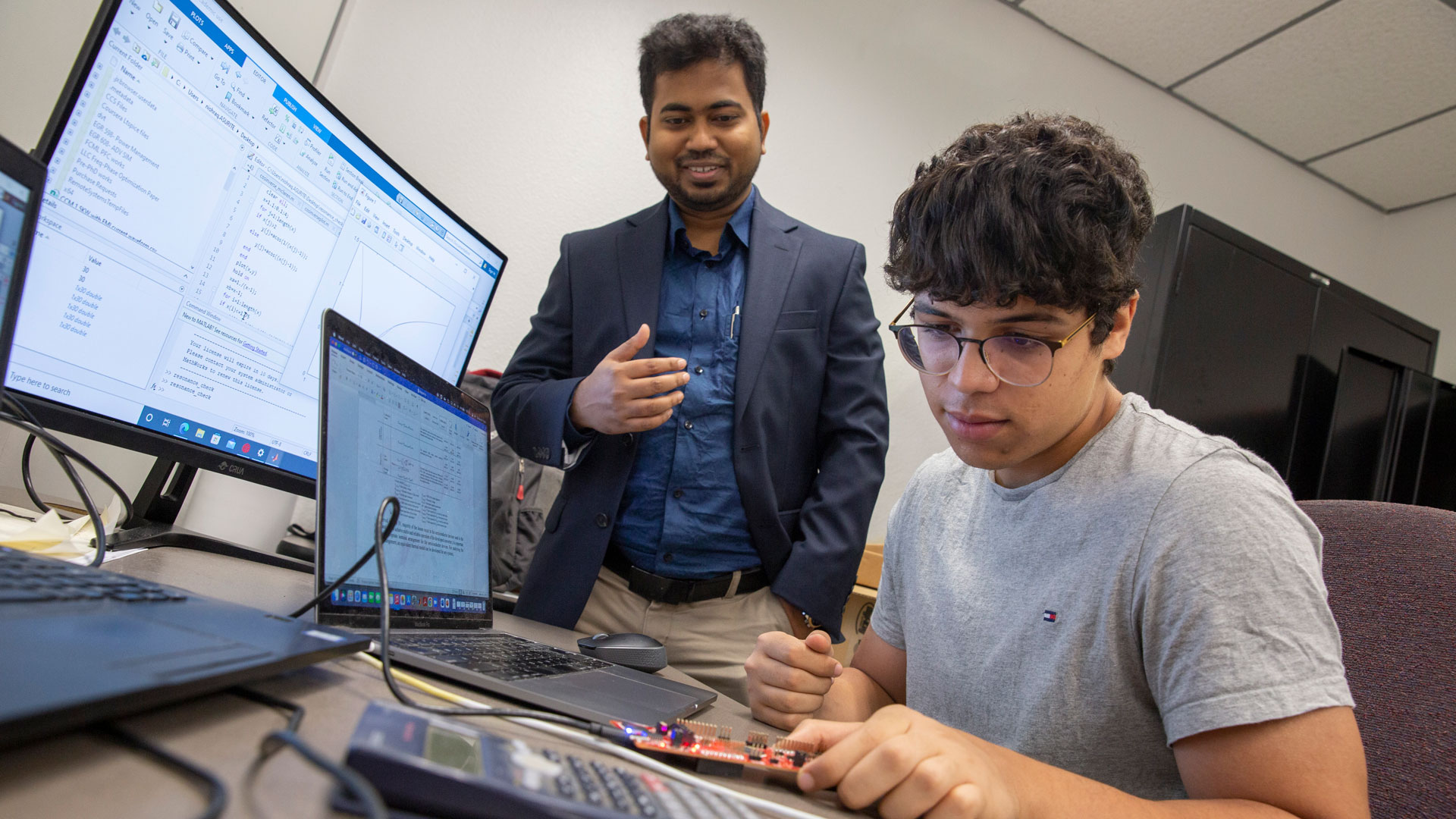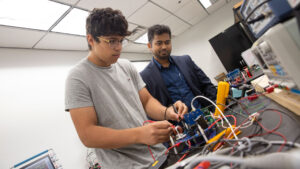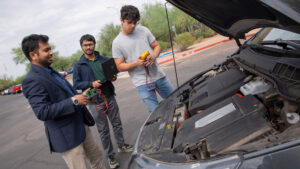Saif Samer Elsaady
Engineering (electrical systems)
Hometown: Tempe, Arizona, United States
Graduation date: Spring 2025
FURI | Fall 2022
Cybersecurity of Onboard Charging Systems for Electric Vehicles
Throughout this independent and thesis-based research, the ramifications of software attacks on electronic hardware in an electric vehicle (EV) are thoroughly investigated in an effort to present the appropriate guidance for defending against cyberattacks. The research team analyzes a miniature model of an EV and analyzes its software to help better understand the dynamics of software attacks on electric vehicles. This research aims to simulate and predict the form of cyberattacks that could be launched on an EV. The advantage of the proposed research, if deemed successful, will be a significant knowledge increase in cyberattacks on electric vehicle chargers, and possibly how to limit them. Studying the cybersecurity of EVs will help better prepare EV owners against possible cyberattacks on their vehicles. It is recommended that modeling on a larger scale with an actual EV is simulated in the future.
Mentor: Ayan Mallik
Featured project | Fall 2022

Saif Elsaady, a sophomore in the engineering program’s electrical systems concentration, is interested in electric vehicles, or EVs. Elsaady is conducting research on the cybersecurity of electric vehicles to help owners guard against potential cyberattacks with Ayan Mallik, an assistant professor of engineering, as part of the FURI program. He says he was surprised by the simplicity of electric vehicles and he has been excited to explore how they work.
What made you want to get involved in FURI and the project you chose?
The idea of learning more and expanding my network has always been of interest to me. I’ve always wanted to learn more about electric cars and the specific differences they have from internal combustion engine vehicles. I chose this project because it is an opportunity to do that.
How will your engineering research project impact the world?
Cyberattacks are a major threat to electric vehicles and chargers. This engineering research project will help impact the world in that it will help people better prepare against cyberattacks on electric cars.
Plugging an electric vehicle into a charging station allows it to draw power from the grid. Chargers power an electric motor, which rotates the wheels, by storing the electricity in rechargeable batteries, which then provide power for the motor as needed. The microcontroller and charging system within the car are the main targets of cyberattacks in electric cars.
Attackers can use different methods to overcharge or undercharge a car’s battery, as well as obtain information regarding the owner of the vehicle from the charging station. The biggest issue I seek to address is limiting cyberattacks and ensuring EV safety and preparedness with software modifications.
Have there been any surprises in your research?
The simplicity of electric cars has been a surprise to me. The power of electric motors is frequently limited by the EV’s battery rather than the motor itself because they are lightweight, dependable and have significantly fewer mechanical components than a gasoline engine.
What has been your most memorable experience as a FURI student researcher?
My most memorable experience was being selected for the program. It was a great moment filled with lots of excitement.
How do you see this experience helping with your career goals?
FURI has helped in learning more about engineering, and it can be a potential opportunity to learn different types of skills to utilize in the real world.
What is the best advice you’ve gotten from your faculty mentor, Ayan Mallik?
His best advice was to expand my network and have the willingness within me to learn more.

